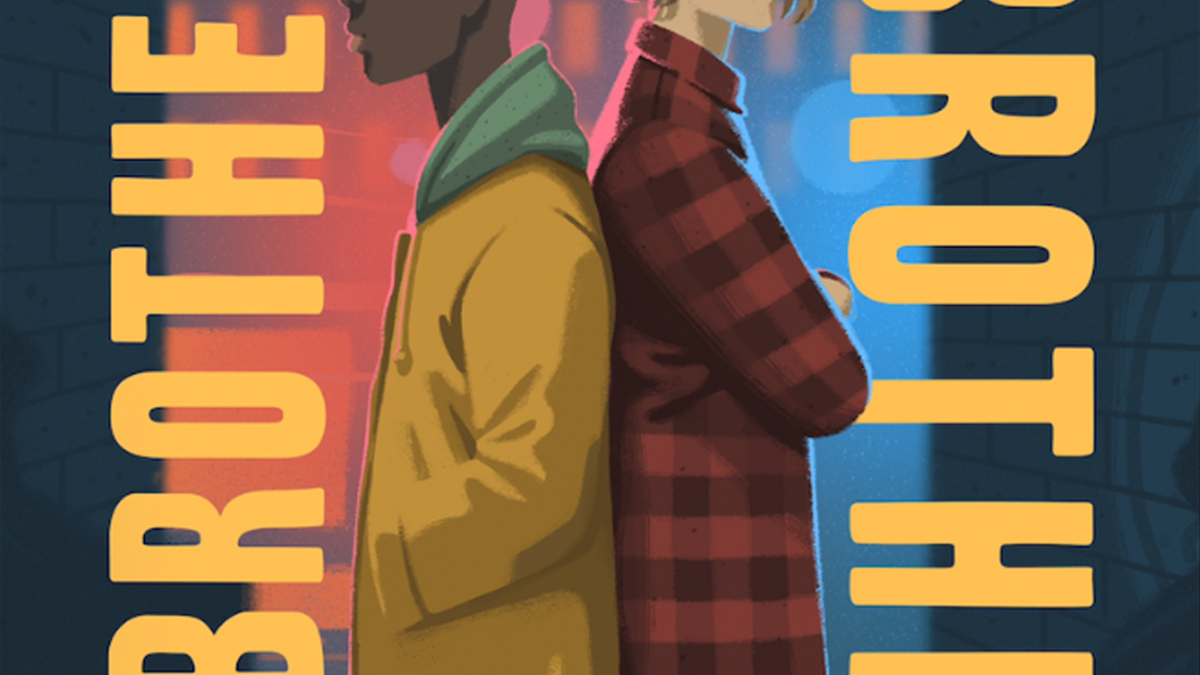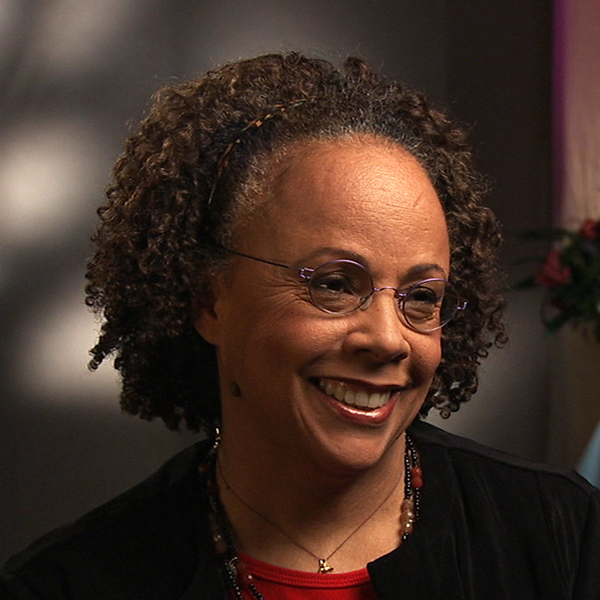Jewell Parker Rhodes' children's novel 'Black Brother, Black Brother' nominated for NAACP Image Award

Award-winning author and Arizona State University professor Jewell Parker Rhodes' latest children's novel, “Black Brother, Black Brother,” was nominated for an NAACP Image Award for outstanding literary work.
In her novels, award-winning author and Arizona State University Professor Jewell Parker Rhodes often combines her firsthand experiences with historical events and a bit of imagination to create fictional worlds readers can both relate to and learn from.
“Black Brother, Black Brother,” Rhodes’ latest children’s novel, follows that same formula — exploring her interest in the history of fencing, her experiences as a mother of biracial children and her passion for social justice. Since its release nearly one year ago, the story has won numerous awards and most recently was nominated for an NAACP Image Award for outstanding literary work.
As the founding artistic director of ASU’s Virginia G. Piper Center for Creative Writing, Rhodes has written 15 novels for children and adults on topics ranging from social justice, equality and environmental stewardship. “Black Brother, Black Brother” highlights colorismA form of prejudice or discrimination in which people who are usually members of the same race are treated differently based on the social implications that come with the cultural meanings that are attached to skin color. and racial bias in the school system through the story of two brothers: Trey, who presents as white and Donte, who presents as Black.
Because of his skin color, Donte is taunted by his peers at school and bullied by the captain of the fencing team. Throughout the course of the story, Donte uses sport to become a fencing champion, to assert his sense of identity and to beat the bully at his own game.
“Though Donte is able to dispel stereotypes and prejudices, when he comes to the end of the book, it’s more about how he’s embraced his own identity with self-love,” Rhodes said. “The idea is that if people have bias or prejudice against you, the problem is in their heart. It really is a shoutout to the codes of fencing and the codes of being great human beings — integrity, honor, fairness, respect, self-confidence, self-esteem and self-love.”
Rhodes said it’s rare for youth to have a book that creates a safe space for them to discuss topics like colorism and identity, but with “Black Brother, Black Brother,” young readers have that opportunity to celebrate and explore their own identities.
“Youth love ‘Black Brother, Black Brother.’ They love it as a sports book, as a triumphant tale of the underdog, a call for social equity in schools and as a celebration of everyone's unique ethnic heritage. Biracial children especially love the representation,” she said.
Rhodes shared her thoughts on the NAACP Image Award nomination, her inspiration behind “Black Brother, Black Brother” and more.
Question: What inspired you to write “Black Brother, Black Brother”?
Answer: In a sense, I believe “Black Brother, Black Brother” is more of a companion book to my New York Times best-selling book, “Ghost Boys.” “Ghost Boys” is about systemic bias and the criminal justice system and “Black Brother, Black Brother” is about systemic racial bias in the school system. America, on a family level, has made clear its racism and colorism. My kids and our family have lived with it for 30-plus years. That was really the core inspiration. “Ghost Boys” sort of opened up my heart to all of this racism that I faced as a child and that my family has lived with. With “Black Brother, Black Brother” I was able to call on my personal history more than any other book I’ve written. The characters are not my kids but they are inspired by what we all went through and continue to go through as a family.
Also ever since I was a child I’ve loved swords and the idea of fencing. I just adored “The Three Musketeers.” When I was 25 years old I saw in Smithsonian Magazine that the author of “The Three Musketeers,” Alexandre Dumas, was a biracial man. I found out later through Tim Reiss’s book “The Black Count: Glory, Revolution, Betrayal, and the Real Count of Monte Cristo” that Dumas was actually writing about his dad who was a great fencer and was a general in Napoleon's army. This was a revelation to me that one of the most famous writers in America had been a person of color and that he was writing about his father.
In “Black Brother, Black Brother” it worked out perfectly that I could marry social justice and the colorism that prevented kids of color from knowing about the history of fencing while also tying in that sense of undermining that fencing has just been an aristocratic, white sport, particularly in America.
Jewell Parker Rhodes
Q: What did your writing process look like?
A: My books will have long gestation periods. “Black Brother, Black Brother” took me about two years. I dream, I have nightmares, I think about it. But I can't write, not unless I hear the character's voice. So when Donte starts out the novel without hearing his voice, I can't tell his story because I don't plot, I have to feel my way through the character. When my characters break down and cry, that's because I'm crying. When they're joyous, I feel that joy ... It's like a stew, all these elements just come together in my mind and my experience. Every time I finish a book, I say, “I'm never writing another one!” Because they take on average two to seven years to write — even my youth books which are so small take a long, long time. It's a marathon. But after about two or three months of not writing, I get grumpy.
Q: How does it feel to be nominated for an NAACP Image Award?
A: The NAACP, proudly and fiercely, advocates and represents the Black community. As a child growing up in a segregated, poor community, they were fighting to make a more equitable future for me. Because of lack of representation of Black writers and Black characters in books, I almost lost my vision to be a writer in the world. To be nominated for a NAACP Image Award, to know my community believes I am representing well our heritage and culture, fulfills my lifelong artistic dream.
Q: What do you hope those who read “Black Brother, Black Brother” take away from it?
A: That none of us are just one genetic thing, we all know we’re descendants from Lucy. We all have a great mixed-race heritage. When I was growing up, my grandmother said, “Jewell child, there's nobody in the world better than you. And you're no better than anybody else. We're all a mixed blood stew.” That was essential for how I grew up and how I live my life. If everyone could accept that we have all kinds of mixed-race bloodlines, it emphasizes our common humanity and the inclusivity. Color is no more than a superficial difference. This book celebrates the uniqueness of the individual, as well as the common humanity of all people. There are a lot of people who have mixed heritage or come from biracial families. In the book, I think they will find themselves mirrored in their most essential sense. It's not your skin tone that matters, it's your interior self — your heart, your mind, your spirit — that makes you like any other wondrous human being.
The 52nd NAACP Image Awards will stream live on March 27 at 6 p.m. MST.
More Arts, humanities and education
AI literacy course prepares ASU students to set cultural norms for new technology
As the use of artificial intelligence spreads rapidly to every discipline at Arizona State University, it’s essential for…

Grand Canyon National Park superintendent visits ASU, shares about efforts to welcome Indigenous voices back into the park
There are 11 tribes who have historic connections to the land and resources in the Grand Canyon National Park. Sadly, when the…
ASU film professor part of 'Cyberpunk' exhibit at Academy Museum in LA
Arizona State University filmmaker Alex Rivera sees cyberpunk as a perfect vehicle to represent the Latino experience.Cyberpunk…
